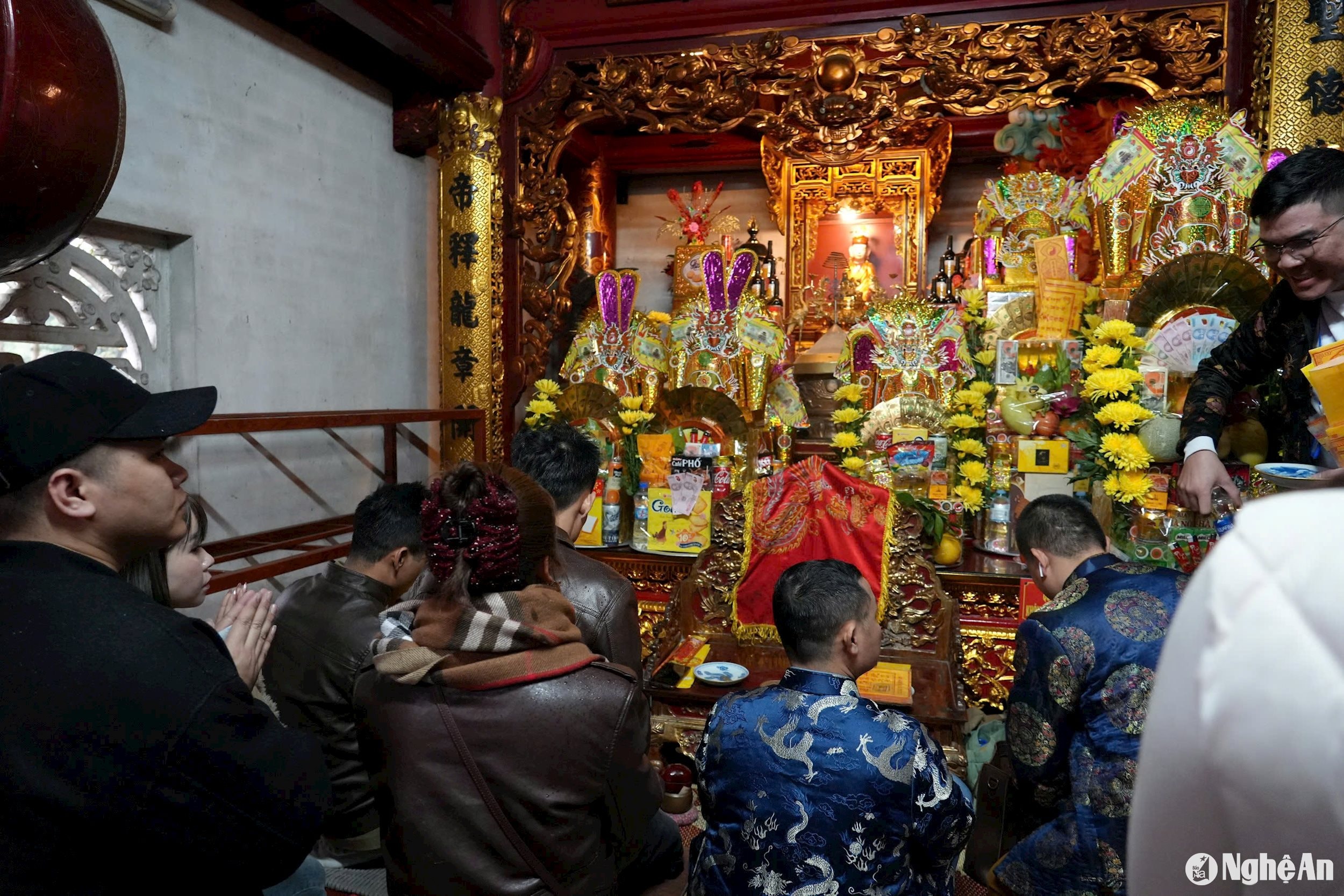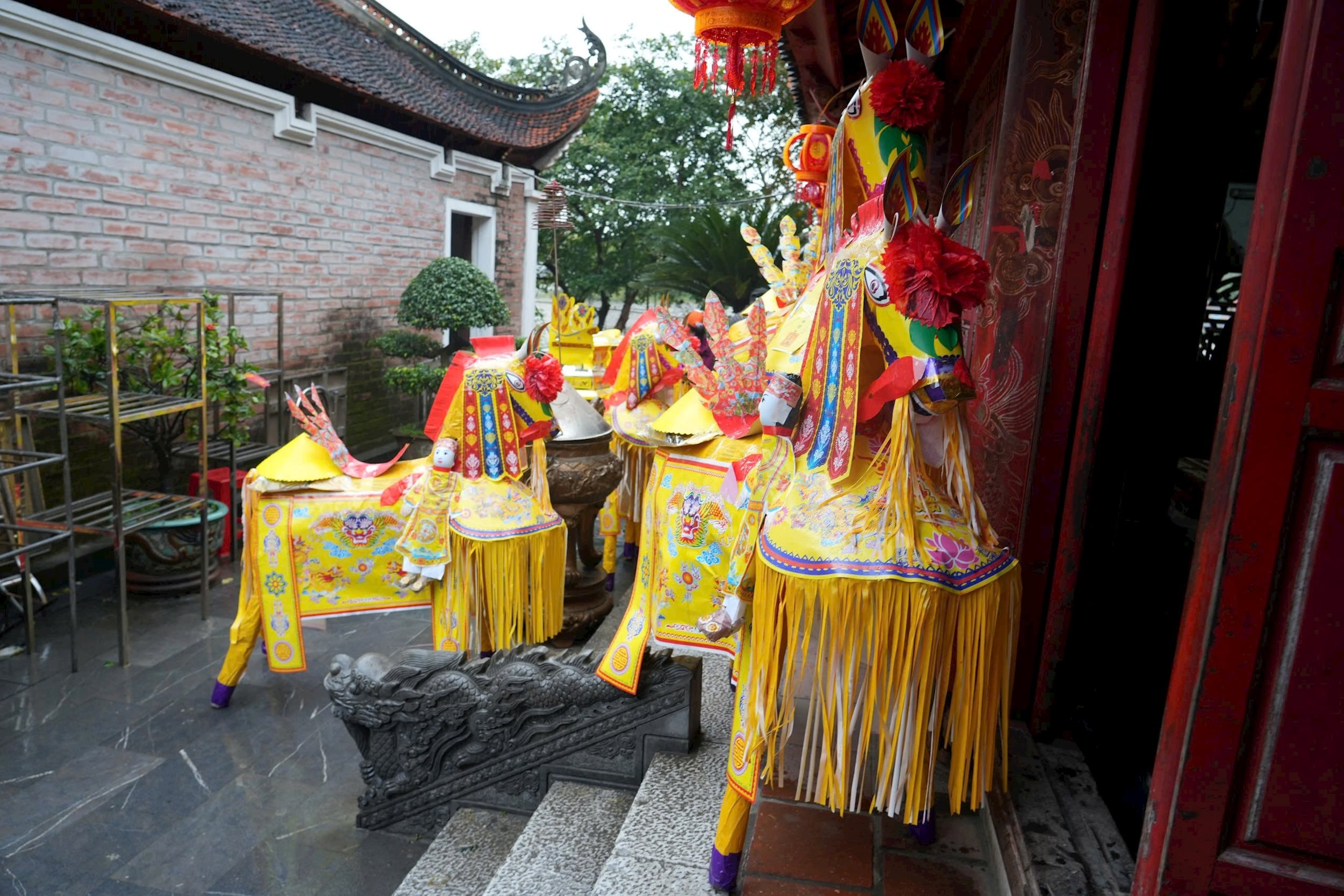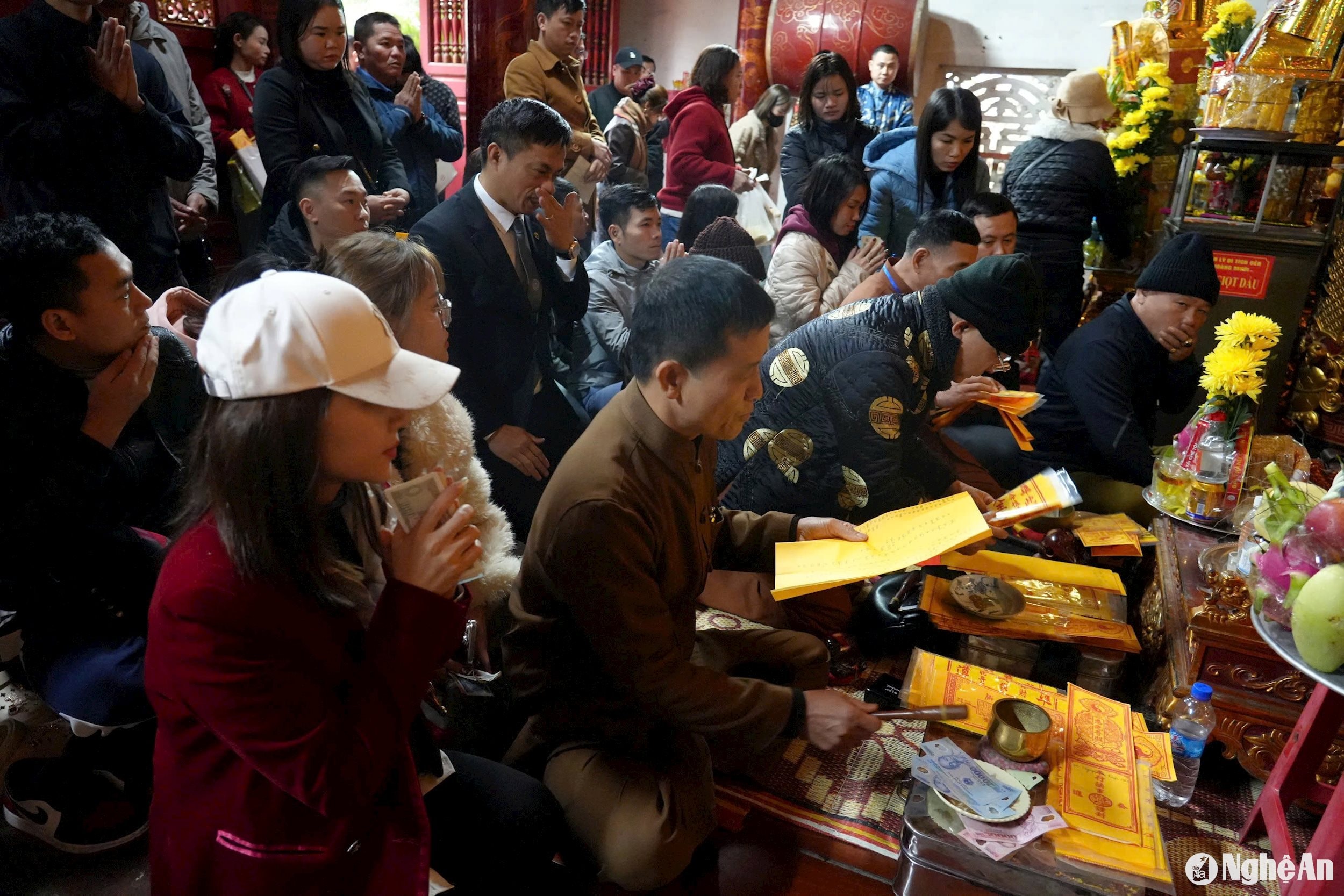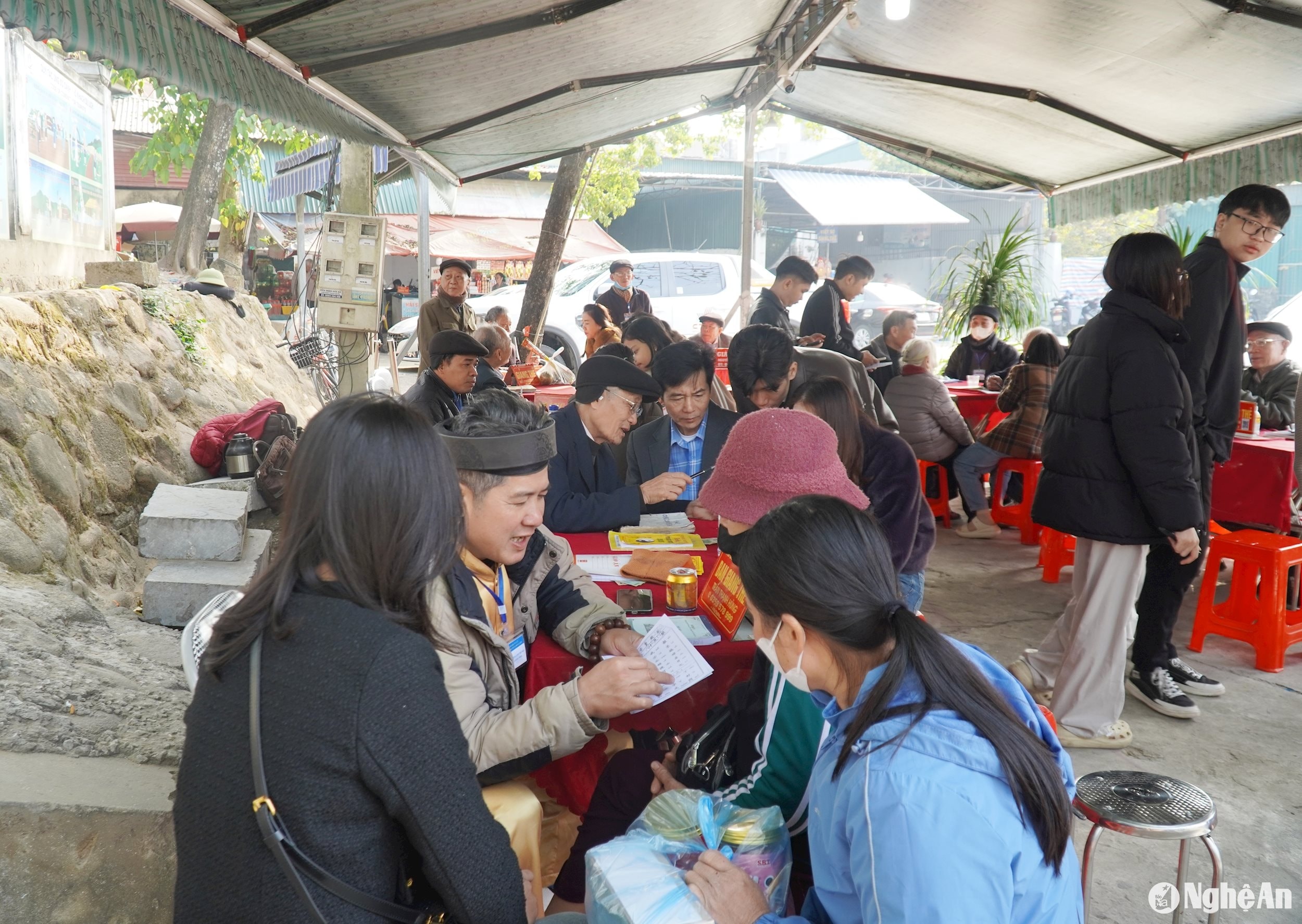Going to church at the beginning of the year - beliefs and transformations
Going to pagodas at the beginning of the year has long been a cultural belief of many Buddhists and tourists from near and far. In addition to the beauty of the New Year's ceremony, there are still some unsightly variations that destroy the inherent beauty of this custom.
Recorded in sacred temples
Temple of Ong Hoang MuoiLocated in Thinh My commune, Hung Nguyen district. On the morning of the 7th day of Tet, hundreds of visitors with offerings on their heads and holding petitions in their hands waited to enter and make offerings. Observations showed that almost everyone entering the temple brought offerings including gold coins, gold bars and ingots, and mandarin hats stacked on top of each other to create a mass higher than a person's head. Some families also prepared sticky rice with chicken, five fruits, candy, and roast pork.
In particular, many people who come to the temple also buy giant paper horses to bring to the ceremony. Visitors explain that Quan Hoang Muoi is a military mandarin, so he needs a horse, official clothes and hat, and to be thoughtful, he needs to prepare all the necessary things.
A gilded paper “horse” nearly as tall as a real horse costs about 1 million VND. Buyers must place orders with suppliers around the temple a month in advance to buy the paper horse for the ceremony.

According to Mr. Nguyen Nguyen Kim Khoa - Deputy Head of the Management Board of Ong Hoang Muoi Temple, the preparation and execution of the ceremony is up to the homeowner. The temple only gives advice on fire and explosion safety, and does not allow people to bring the "horse" into the shrine to avoid fire.
Mr. Khoa also said that from the first day of Tet until now, the temple has welcomed about 100,000 visitors, many of whom come to the temple to pray for peace and good fortune at the beginning of the year. Each homeowner brings a very large and cumbersome offering. Sometimes the shrine does not have enough space to display the offering, so the homeowner has to hold it in their hands and wait for hours.

A situation that occurs in many temples and pagodas today is the proliferation of services for warding off bad luck, praying for peace, and spiritual fortune telling. For each prayer session, the homeowner must prepare a ceremony that costs at least 1-2 million VND, and at most up to several tens of millions of VND.

According to the Management Board of Ong Hoang Muoi Temple, there are currently 30 people called girls and boys who provide spiritual support, praying on behalf of the homeowner, and are managed by the temple. However, the agreement between the homeowner and the girls and boys in performing the prayer sessions and removing bad luck is not managed. "There are also many tourists who bring their teachers to the temple, but the temple cannot manage these teachers," said Mr. Nguyen Kim Khoa, Deputy Manager of Ong Hoang Muoi Temple.
Don't let "trading saints and gods" take over

At Con Temple, Hoang Mai town, the first days of the year are also crowded with tourists. Around the temple, services such as writing petitions, casting bamboo sticks, and interpreting fortunes are also flourishing. This is a long-standing spiritual activity of this famous temple in Nghe An.
According to the temple management board, every day, the temple has about 10,000 visitors coming to worship or make offerings to the stars, to ward off bad luck. Most visitors who come here ask to cast lots, toss bamboo sticks to know their luck in the new year. After rolling the bamboo sticks and finding a number, visitors take the card to the corresponding bamboo stick management area to receive their lotto. Visitors who want to know their luck in the year need to have someone interpret the words, so the temple has 2 services for this bamboo stick tossing. The temple management board also said that the price of this service is very low, so visitors do not complain, moreover, this is a long-standing activity so the temple continues to maintain it.
However, when asked if the fortune teller will guide them to resolve the bad luck if they get a lucky number, the answer is that it depends on the homeowner. If the homeowner asks, the fortune teller will guide them...
On January 30, 2024, the Prime Minister issued Official Dispatch No. 11/CD-TTg on ensuring a civilized, safe, and economical lifestyle in religious and belief activities during the Lunar New Year. According to the content of the dispatch, places of worship must not allow superstitious, distorted, or socially deviant activities to occur, or take advantage of spiritual activities for personal gain, or burn votive papers and votive paper indiscriminately, causing waste or being in the wrong place at places of worship and religious establishments.
Nowadays, activities such as praying to the stars to ward off bad luck, pray for peace and fortune are quite common and almost every temple and pagoda has this activity. It can be said that this seems to be a familiar custom of the people. To limit people from taking advantage of the belief of "selling gods and saints", the authorities at all levels need to have stricter management mechanisms.
According to Associate Professor, Dr. Nguyen Quang Hong - Vinh University
"To have a peaceful and civilized Spring festival season, religious and belief festivals, people should understand that no belief or religion encourages human greed. Regularly nurturing and sharing positive energy with people around will create a joyful and happy atmosphere, bringing high efficiency in work. This is also the universal goal that all beliefs and religions aim for," Associate Professor, Dr. Nguyen Quang Hong shared.
